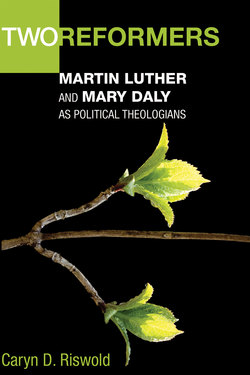Описание книги
"By them we have been carried away out of our own land, as into a Babylonian captivity, and despoiled of all our precious possessions." Martin Luther, 1520
"Their goal is our deracination, which is 'detachment from one's background (as from homeland, customs, traditions).' Thus women and other Elemental creatures on this planet are rendered homeless, cut off from knowledge of our Race's customs and traditions." Mary Daly, 1984
What is this land, this world of which these two theologians are speaking? Why do the two statements above sound similar in the authors' longing for a true home, for our own land? And who is this «them» who carries us away and cuts us off? Could it be possible that Martin Luther and Mary Daly, different in almost every way, are saying something similar? Why do these key figures in the Christian theological tradition, who come from different times, places, and politics, engage in such a parallel task? How is this possible? This book examines a series of surprising parallels between two key reforming figures in the Christian theological tradition and suggests that the two are in fact engaged in the same task: political theology. Applying a new label to familiar theologians enables readers to see both of them as well as their reformations in a new light. The sixteenth-century Reformation and second wave feminism are viewed through the pioneering work of Luther and Daly here to further establish the political content and consequence of these theologians.
"Their goal is our deracination, which is 'detachment from one's background (as from homeland, customs, traditions).' Thus women and other Elemental creatures on this planet are rendered homeless, cut off from knowledge of our Race's customs and traditions." Mary Daly, 1984
What is this land, this world of which these two theologians are speaking? Why do the two statements above sound similar in the authors' longing for a true home, for our own land? And who is this «them» who carries us away and cuts us off? Could it be possible that Martin Luther and Mary Daly, different in almost every way, are saying something similar? Why do these key figures in the Christian theological tradition, who come from different times, places, and politics, engage in such a parallel task? How is this possible? This book examines a series of surprising parallels between two key reforming figures in the Christian theological tradition and suggests that the two are in fact engaged in the same task: political theology. Applying a new label to familiar theologians enables readers to see both of them as well as their reformations in a new light. The sixteenth-century Reformation and second wave feminism are viewed through the pioneering work of Luther and Daly here to further establish the political content and consequence of these theologians.
